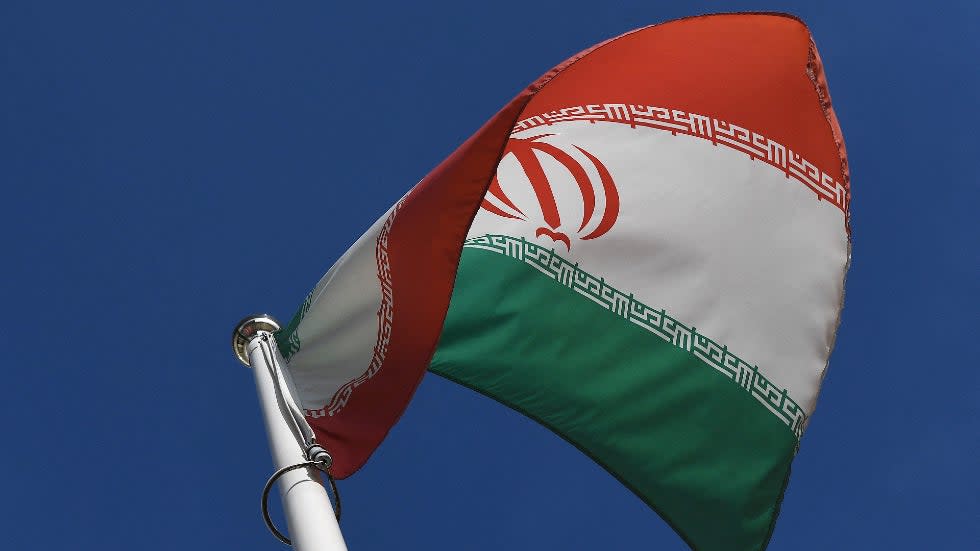US 'concerned' over Iran rocket launch

The U.S. is concerned about Iran's development of space launch vehicles, saying there is a serious risk Tehran is building up its ballistic missile program and one could someday be used to carry a nuclear warhead, a State Department spokesperson told The Hill.
The Iranian government on Thursday claimed to have successfully launched a rocket carrying three satellite "research devices" into space.
It was not immediately clear if the research devices had been successfully launched into orbit, but the move follows increasingly provocative actions by Iran even as it engages in indirect talks with the U.S. over a mutual return to the 2015 nuclear deal, called the Joint Comprehensive Plan of Action (JCPOA).
The State Department spokesperson said Iran's space program, which Tehran describes as for civilian purposes, violates a resolution in the United Nations Security Council that calls upon Iran not to undertake activity related to ballistic missiles "designed to be capable of delivering nuclear weapons, including launches using such ballistic missile technology."
"The United States continues to use all its nonproliferation tools to prevent the further advancement of Iran's missile programs and urges other countries to take steps to address Iran's missile development activity," the spokesperson said.
Iran's semiofficial Fars News Agency on Thursday quoted Iranian Defense Ministry Spokesman Ahmad Hosseini lauding the rocket's successful launch into space as an achievement of the Islamic republic's civilian space program.
"We will speed up work so that we can become one of the six countries that can launch satellites into the GEO (geostationary) orbit," Hosseini is quoted as saying. Fars News Agency is owned by the Islamic Revolutionary Guard Corps, which was designated as a foreign terrorist organization by the U.S. in 2019.
The Associated Press reported that Hosseini and other officials had yet to comment on the status of the objects launched into space hours after the launch, suggesting the rocket had failed to reach the speeds necessary to place its payload in the correct orbit.
The Trump administration viewed Iran's efforts to launch satellites into space as provocative military actions. In 2020, then-Secretary of State Mike Pompeo condemned Iran's successful launch of a military satellite into space, saying the effort advanced Tehran's ballistic missile program.
A launchpad rocket explosion in 2019 notably grabbed the attention of then-President Trump, who tweeted out an image of the destruction along with "best wishes and good luck" in determining the cause of the failure.
And in 2017, the U.S., United Kingdom, France and Germany issued a joint complaint to the United Nations over Iran's launching of a satellite-carrying rocket, with then-U.S. Ambassador to the U.N. Niki Haley calling the launch a violation of the nuclear deal.
The Trump administration pulled out of the JCPOA in 2018, and the Biden administration is engaging in an eighth round of indirect talks with Iran in Vienna over efforts to bring both parties back to the deal, which President Biden says is the best way to prevent Iran from achieving a nuclear weapon.
Iran, which claims its nuclear activities are for peaceful purposes, began violating the terms of the agreement in 2019 and has since far exceeded the constraints of the deal, drawing the frustration of American negotiators who criticize Tehran as not engaging in the talks in good faith.
State Department spokesperson Ned Price on Wednesday told reporters that while the U.S. and Iran have made "some modest progress" during the last round of talks, it is too soon to say how substantive that progress is.
"At a minimum, any progress, we believe, is falling short of Iran accelerating [its] nuclear steps, and is far too slow," he said. "As we've said before, this can't continue or it will soon be too late to return to mutual compliance with the JCPOA."

